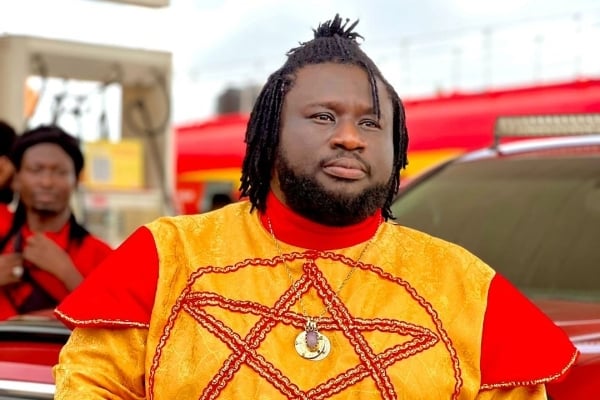Bishop Kwabena Asiamah, also known as Ajagurajah, the leader of the Ajagurajah Movement, has ignited a social media debate with his unconventional advice to men regarding marriage and procreation. He argues that relying on a single woman to bear children poses a significant risk to the continuation of a man’s lineage, suggesting that a man should marry multiple women to safeguard his family line. His reasoning hinges on the unpredictable nature of children’s futures and the possibility that all offspring from a single marriage might not lead responsible or successful lives. This perspective, he claims, necessitates a broader approach to procreation, distributing the risk across multiple families.
Ajagurajah’s rationale centers on the potential for unforeseen circumstances to derail a family’s future, even if the parents have the best intentions. He uses the example of children becoming “vagabonds,” suggesting that even within a seemingly stable family unit, there’s a chance that offspring might not live up to expectations or contribute positively to the family name. This, in his view, could lead to the extinction of a lineage if all reproductive eggs are placed in one basket. By having children with multiple women, he posits, a man increases the probability of having at least some offspring who will carry on the family name and values.
The ensuing online discussion reflects a divided public opinion. Supporters of Ajagurajah’s view echo his concerns about the uncertainties of life and the importance of ensuring the continuation of one’s lineage. They argue that his advice is a practical approach to mitigating the risk of unforeseen circumstances affecting all of a man’s children. This perspective aligns with certain cultural practices where polygamy is accepted and even encouraged as a means of ensuring family continuity and providing social security in the absence of robust social safety nets. In these contexts, having a large family, often through multiple wives, is seen as a sign of prosperity and a safeguard against future hardships.
However, detractors argue that his perspective undermines the sanctity of marriage and promotes polygamy, which they view as detrimental to the well-being of women and children. Critics point to the potential for jealousy, rivalry, and unequal treatment within polygamous families, emphasizing the emotional and psychological toll it can take on all involved, particularly women and children. They argue that Ajagurajah’s advice disregards the emotional complexities of relationships and promotes a transactional view of marriage and childbearing, reducing women to mere vessels for procreation rather than equal partners in a loving and committed relationship.
The controversy also highlights the ongoing tension between traditional practices and modern values. In many societies, monogamy is considered the norm, and polygamy is often stigmatized and associated with outdated social norms. Ajagurajah’s comments challenge this prevailing view, prompting a broader conversation about the evolving definitions of family and marriage in a rapidly changing world. This debate reflects the complex interplay between cultural norms, religious beliefs, and individual choices, particularly in societies undergoing rapid social and economic transformation.
Ultimately, Ajagurajah’s pronouncements, while controversial, have served as a catalyst for a wider discussion on marriage, family, and the pressures surrounding procreation. Whether one agrees with his views or not, the ensuing debate underscores the complex and often conflicting perspectives on these fundamental aspects of human life. It highlights the tension between individual desires, societal expectations, and the enduring human desire to leave a lasting legacy. The controversy also brings to the fore the need for nuanced conversations around these sensitive topics, acknowledging the diversity of perspectives and the evolving nature of family structures in the 21st century.














